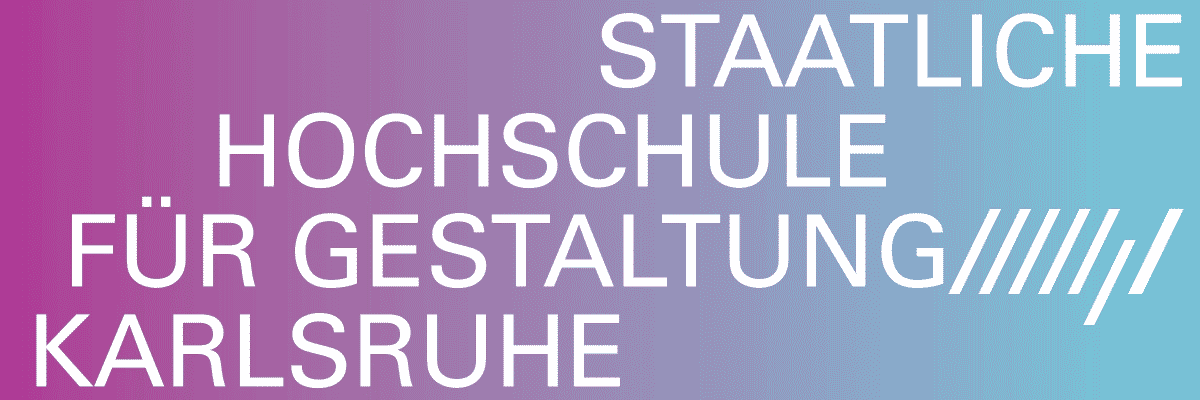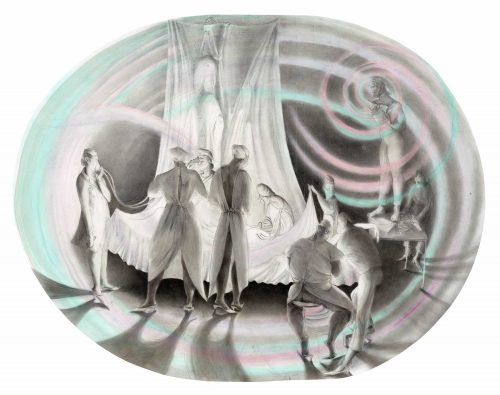
Naomi Maury
Exoskeletlight
Project Info
- 💙 Musée régional d'art contemporain de Sérignan
- 💚 Clément Nouet
- 🖤 Naomi Maury
- 💜 Clément Nouet
- 💛 Aloïs Aurelle
Share on

Halos#3 Neon Led Orange, Pink, purple, curved metal, diffusing fabrics. And Exosquelettes#3 Curved metal. Prothesis hand-woven wire installed on the exoskeleton, wearable by performers.
Advertisement

Exoskeletlight, 2023 immersive environment including halos, exoskeletons, prosthesis, a movie and a sound composition by Aske Andersen.

Exoskeletlight, 2023 immersive environment including halos, exoskeletons, prosthesis, a movie and a sound composition by Aske Andersen.

Exosquelettes#4 Led white, curved metal, diffusing fabrics. Prothesis hand-woven wire installed on the exoskeleton, wearable by performers.

Exosquelettes#5 Led white, curved metal, diffusing fabrics. Prothesis hand-woven wire installed on the exoskeleton, wearable by performers.

Halos#1 Neon LED Orange, White, RED, curved metal, diffusing fabrics. And Exosquelettes#1 ans Halo#4 Curved metal. Prothesis hand-woven wire installed on the exoskeleton, wearable by performers.

Halos#1 Neon LED Orange, White, RED, curved metal, diffusing fabrics. And Exosquelettes#1 Curved metal. Prothesis hand-woven wire installed on the exoskeleton, wearable by performers.

Halos#5 Neon Led pink, orange curved metal, curved metal, diffusing fabrics.

Halos#6 Neon led white, pink, red, orange curved metal, diffusing fabrics.

Halos#3 Neon Led Orange, Pink, purple, curved metal, diffusing fabrics. And Exosquelettes#3 Curved metal. Prothesis hand-woven wire installed on the exoskeleton, wearable by performers.

immersive environment including halos, exoskeletons, prosthesis, a movie and a sound composition by Sk Andersen.

The meaning of light, 2023 Movie : 37 minutes, TV, Metal foot. Actors Brigitte Defresne, Danaé Jerome, Jean-Loup Prudent, Robin Lachal. Director: Naomi Maury Filmmaker: Manon riet Sound composition: Sk Andersen Chrysalid fabric installation.

The meaning of light, 2023 Movie : 37 minutes, TV, Metal foot. Actors Brigitte Defresne, Danaé Jerome, Jean-Loup Prudent, Robin Lachal. Director: Naomi Maury Filmmaker: Manon riet Sound composition: Sk Andersen Chrysalid fabric installation.

The meaning of light, 2023 Movie : 37 minutes, TV, Metal foot. Actors Brigitte Defresne, Danaé Jerome, Jean-Loup Prudent, Robin Lachal. Director: Naomi Maury Filmmaker: Manon riet Sound composition: Sk Andersen Chrysalid fabric installation.
Performers wearring sculptures prosthesis

Performers wearring sculptures prosthesis

Symbiosis #12, cage thoracique,2023 Colored pencil, linen fabric, metal hook. 99 × 131 cm
The Musée régional d’art contemporain Occitanie in Sérignan has
invited Naomi Maury (b. 1991, Bédarieux), winner of the Prix Occitanie
Médicis 2022, to stage her first major solo exhibition in a museum. On
this occasion, the artist is offering a physical and sensory immersion
into a body of works, most of them previously unseen, that explore the
boundaries between experience and fiction.
Naomi Maury’s solo exhibitions are structured around bold presentations of her
sculptures accompanied by ensembles of other items (films, halos of light, drawings,
soundscapes, prostheses, and objects operated by performers) that reveal the traces of
their evolution.
The artist creates multi-faceted works that take the form of spectacular installations that
blend science, experience, and mystery.
By combining history, biology, and science fiction into a single disconcerting spectacle,
the artworks resurrect the past while creating a fusion between the subterranean and
the subcutaneous, the present, the future, and the dream worlds. At the same time, they
revisit the notion of collection in the information age, as theorised by the sociologist
Manuel Castells.(1)
Naomi Maury creates what she calls “families of sculptures” that engage with each other,
respond to each other, love and tear apart each other. Each installation consists of a
luminous halo and one or more sculptures composed of metal tubing enhanced with one
or more woven metal prostheses and/or orthoses. With a great economy of means, she
creates amalgams between natural elements such as moss, coral, or wood and artificial
or industrial materials such as plastic, metal, fabric, or neon. Situated at the crossroads of
archaism and futurism, Naomi Maury’s artistic exploration seizes upon the forms of the
living to invent creatures that inhabit a fantasised reality.
The artist has created her own bestiary where ethnographic arts, archaeology, science
fiction, and biology coexist harmoniously to create her Exosquelettes [Exoskeletons]. Her
sculptures tower slightly over the spectators, maintaining a familiar relationship with
them, as if to better reveal their disquieting strangeness. Each sculpture has its own place,
one that is both autonomous and part of a whole. Placed on the floor or suspended,
(1) Castells, Manuel. The Rise of the Network Society, 1996.
In the “network society” that is succeeding industrial society, the social state is shaped by a new “informational mode of
development”. This is defined by “the action of knowledge upon knowledge itself as the main source of productivity”. Information
processing aims to perfect the technology of information processing as a source of productivity, in a virtuous circle of interactions
between the knowledge at the basis of the technology and its application, all in order to improve the generation of knowledge, the
processing of information, and the communication of symbols.
13/25
always in a precarious balance, they seem on the verge of teetering, of collapsing. As
visitors move through the exhibition, they “become one” with the sculpted forms, skirting
around them, stepping over them, brushing against them, sometimes at the risk of
destabilising them.
At a time when we are confronted with a biodiversity crisis caused by the effects of
human activity and the “extinction of the experience” of nature (Robert Michael Pyle),
Naomi Maury’s installations create the conditions for an intimate and sensory encounter
between visitors to the exhibition and the bionic beings that are being evoked.
The artist’s new film, The Meaning of Light (2023), which was shot amid the vineyards
and scrublands in the Cabrerolles area west of Montpellier, is a synthesis of the artist’s
latest creative research. As she explains, the work is like an enigmatic odyssey that takes
place “in a speculative future as we follow a group of humans living outdoors among
the natural elements for an entire day at the time of the summer solstice.” Combining
hybridised, humanoid individuals fitted with prostheses and/or orthoses, luminous halos,
and sculptures, the film invites us to remedy the present world and to think about the
world to come. It’s a way of thinking that distances us from the present while profoundly
questioning human potential and audaciously exploring other possibilities, ones that
embrace values similar to those at the foundation of the philosophical inquiry into
transhumanism. The film is expressly set against the backdrop of the summer solstice, the
time of year when the sun rises to the highest point in the sky and lights up one of the two
hemispheres for the maximum duration. June 21st is thus the longest day of the year, a
time when light is a receptacle for the beauty of the world. One possible interpretation of
the film is as an act of contemplation as it aspires to collect the glimmers of dawn and the
fading glories of dusk.
In the film, as in the performances she orchestrates, actors put on and operate the
prostheses and/or orthoses that have been fitted to the sculptures. The performers are
obliged to modify their movements because of the discomfort caused by these devices.
Their “impeded” bodies are forced to invent odd movements of the limbs, tiny shifts
in the torso, arms, and legs, and unstable balances. Together, they devise an original
choreography that manifests itself as the apparel and accessories of the performative
body. The notion of prosthesis/orthosis appears not as something that replaces/repairs a
limb or an organ and reproduces its forms and functions as closely as possible, but instead
as something that completes and distinguishes the human animal as a human being. This
process of freeing limbs or organs is integral to the creation of an artifice, of an object,
that is developed by people to propel their evolution and even ensure their very survival.
These “families of sculptures” populate the exhibition and the film, creating a unique
ecosystem that plunges visitors into a post-apocalyptic universe. The cohabitation
and complementarity of the components, supported by meticulous sound design that
was done in collaboration with the artist Aske Andersen, opens up new perspectives.
The fragility and precarious homeostasis of the sculptures are reflections of life in
constant mutation. In this way, the concept of prostheses/orthoses makes it possible
not only to accept the idea of the disappearance of the body, but also to see it as a
project for extending one’s being and affirming one’s identity. The body is no longer a
sanctuary. It is distanced from its biological determinism. It is no longer experienced as
a destiny, no longer an axiomatic given, but has become an object to be transformed
14/25
by new technologies. The modern world is characterised by a body that is subject to
transformation. Naomi Maury’s prostheses invite us to transcend the notion of disability
that they engender as they act as a repair or a compensation, and instead view them as a
possible aestheticisation of the body. Their spatial formalisation sheds light on the nature
of the processes of enhancement, eroticisation, and fetishisation. The metamorphosis
of the body can also be seen alongside the image of the cyborg as a matrix of identity
and a political messenger. The feminist science historian and primatologist Donna
Haraway called for this development as early as 1985 in her essay A Cyborg Manifesto.
The boundaries between humanity and the machine, between reality and virtuality, are
liquefying.
The Exoskeletlight exhibition evokes a hybridisation between beings and traces a
mythology of the present time with narratives nourished by sensibilities, attentiveness,
and a renewed dignity in order to reflect on another world, whether it be future or
fictional. In this way, Naomi Maury allows unknown, invisible, and extinct forms of life to
emerge in a meditative and immersive experience.
Naomi Maury was born in Bédarieux in 1991. She lives and works in Sète. After graduating from
the ESAAA school of art in 2015, she had a studio at ADERA Décines in Lyon until 2018. She then
embarked on a series of solo, duo, and group exhibitions. In 2019, she undertook a residency in
Thailand with the support of the Institut Français, before exhibiting at the IAC art institute in
Villleurbanne as part of the Biennale de Lyon. At the end of 2020, she had a residence in Iceland
thanks to the Artists in Residence programme, the French Embassy in Iceland, and the Nýló Living
Art Museum. She then exhibited at L’Assaut de la Menuiserie in Saint-Étienne for her first solo
show. In 2021, Naomi Maury won the Mezzanine Sud prize at Les Abattoirs in Toulouse, where she
presented a sensory and immersive installation. In 2022, she was in residence at the CEMES centre
for the elaboration of materials and structural studies in Toulouse, which is part of the CNRS
national centre for scientific research; as part of this residency, she worked on questions of
matter with physics and chemistry researchers, and held an exhibition in the CEMES sphere. That
same year, she exhibited with Damien Fragnon at Mécènes du Sud Montpellier. At the end of spring
2022, she was awarded the Prix Occitanie - Médicis, and lived at the Académie de France - Villa
Médicis in Rome from October 2022 to January 2023.
Clément Nouet




